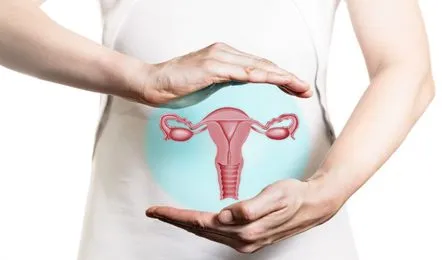Mental and physical health are very connected – it is obvious when we look at female reproductive health. However, the relationship between women’s reproductive wellness and their mental health are seldom apparent. The mind is an influence in reproductive outcomes from menstrual health to pregnancy and even after fertility. Women wanting to learn more about Well Woman care can understand this connection as all parts of a person’s well being work together.
The Mind-Body Connection
We know that we are body and mind combined and stress is one of the major factors which disrupt the hormonal balance. Regulation of reproductive hormones also occurs via the hypothalamic pituitary adrenal (HPA) axis, which controls the body’s stress response. Continual stress can throw off this balance and cause stress induced amenorrhea, when a woman stops her menstrual cycle. This shows exactly how mental health, in its disruption of functions, can influence reproductive functions.
The Relationship of Mental Health to Menstrual Health
Menstrual health is also highly affected by mental health. Irregular menstrual cycles are often the result of stress, anxiety and depression. These can disrupt the production of hormones like estrogen and progesterone, both important to maintain your cycle on a regular basis.
Mental health problems also make other conditions, such as Premenstrual Syndrome (PMS) and Premenstrual Dysphoric Disorder (PMDD), worse.
Mental health triggers like mood swings, irritability and depression fall under these disorders. Managing mental health for women is really important as so many can reap huge benefits from using stress reducing techniques, therapy and mindfulness practices to help create a healthier menstrual cycle.
Mental Health and Fertility
Mental health also impacts on another area, fertility. Stress, anxiety and depression can have a negative effect on a woman’s ability to conceive. It can mess with ovulation and decrease your likelihood of getting pregnant. Additionally, treatment of infertility itself is a vicious circle, because mental health commonly deteriorates when trying to conceive. It underscores the need to provide counseling and emotional support along the way. Mental health has a huge impact on the ability to conceive and amends the experience a woman has going through it.
Pregnancy and Postpartum Mental Health
How mental health affects a woman’s pregnancy is important as it has lifelong consequences for the baby too. A gynecologist in Karachi can play a crucial role in identifying and managing prenatal depression and anxiety, which can alter fetal development and cause problems during pregnancy.
Postpartum depression is also a concern after childbirth. Both maternal and infant care can suffer due to symptoms such as sadness, fatigue, and difficulty bonding with the baby, to name a few. Early diagnosis and treatment of these conditions can help ensure the well-being of both mother and child. Family, therapy, and sometimes medication can help women push through these times successfully.
The Role That Mental Health Plays In Reproductive Disorders
Poor mental health generally worsens reproductive disorders like Polycystic Ovary Syndrome (PCOS), endometriosis and fibroids. When left untreated, these conditions can cause chronic pain, hormonal imbalances, and infertility and cause tremendous emotional suffering. Conversely, improving mental health management may help to remedy some of these symptoms, and improve overall outcomes. Reducing stress is known to help women with PCOS reduce irregular periods and weight gain, for example. Given the complexity of these disorders, it is important to introduce a holistic point of view that includes mental health care in the management and treatment of these diseases.
Better Mental and Reproductive Health Lifestyle and Coping Strategies
Healthy living is important both to our mental and reproductive health. Hormonal stability and stress reduction results from a balanced diet, regular exercise, and enough sleep. Some mindfulness practices, including meditation and yoga, are very good at teaching us how to relax and relax and reduce anxiety. If a woman finds she is dealing with mental health challenges, it’s okay to seek out professional help. Tools that can help someone manage their mental health and better their reproductive outcome include therapy, counseling and support groups.
Talking about Mental Health and Women’s Reproductive Wellness
A lot of women don’t talk about their struggles or even seek out help because of culture and society. This silence can worsen their condition and prevent them from getting the care they require. The stigma surrounding mental health can and should be broken, starting with raising awareness and opening conversations about it.
By seeking guidance from professionals such as a gynecologist in Lahore, women can address not only their physical health but also the emotional and mental challenges they face. Providing women with education and community support can help make seeking care synonymous with prioritizing their well-being without fear of judgment.
Conclusion
Mental health plays such a huge part in female reproductive wellness. Hormonal balance and menstrual health, fertility and pregnancy, taking care of your reproductive health – everything about a woman’s reproductive journey is connected to mental health. When women choose to prioritize their mental health they’re taking back control of their reproductive well being and overall life quality. Far holistic care and professional support coupled with the change of lifestyle go in making them healthy and happy both physically and mentally.










